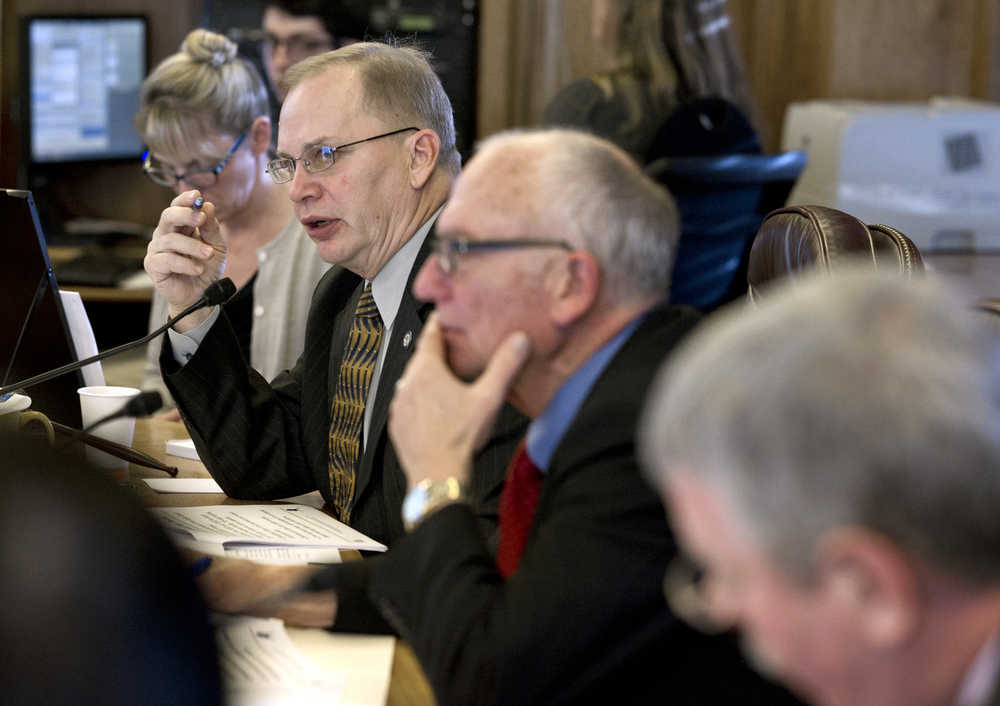Leaders of the state-owned Alaska Gasline Development Corporation were the subjects of a legislative inquiry on Tuesday as lawmakers consider whether the AGDC is fit to take over from pipeline giant TransCanada in the natural gas megaproject known as AKLNG.
Tuesday was the fourth day of a special session devoted to deciding whether the state should buy out TransCanada’s share of the $45 billion to $65 billion project in order to be assured of more profit once it begins operating.
“I think members of the Legislature would like assurances that whether it’s Gov. (Bill) Walker or some other governor down the road … that AGDC is fully autonomous … from any administration that may be in power at the time,” said Rep. Mark Neuman, R-Big Lake and chairman of the House Finance Committee.
The official question on lawmakers’ agenda in this special session is whether to allocate $157.6 million to pay for the state’s share of the first phase of AKLNG, which would bring natural gas from the North Slope to Cook Inlet for export.
To avoid paying up front for its one-quarter share in the project, the state entered into a contract with Canadian firm TransCanada. Under the terms of the agreement, TransCanada pays all of the state’s direct costs until construction begins, then half of the state’s share of construction costs. In return, the state gives TransCanada a cut of its revenue once gas starts flowing.
If the pipeline deal falls apart for any reason, or if TransCanada wants to walk away from it, the state must repay TransCanada every dollar plus 7.1 percent interest.
That’s a high interest rate compared to the open market, which is why the state is considering a buyout and has earmarked $68 million of the legislative request to take an “offramp” built into the TransCanada contract. If the state doesn’t act by Dec. 31, its next offramp is years (and hundreds of millions of dollars) later.
Lawmakers seem to have been convinced of the financial benefits of such a decision, and they’re now focusing on what would come after a buyout, when AGDC takes TransCanada’s spot.
Can the state borrow the $12 billion to $16 billion needed for its share of the pipeline? Can AGDC effectively manage the effort? And what happens if the worst happens and the deal falls apart?
Early in Tuesday’s House Finance Committee meeting, AGDC vice president Joe Dubler firmly killed any question about whether the AGDC has the legal ability to take TransCanada’s role. Neuman had questioned that ability on Monday.
Armed with a legal opinion from one of the state’s assistant attorneys general, Dubler explained that Senate Bill 138 — which began the AKLNG project — allows AGDC to “acquire an ownership or participation interest in an Alaska liquefied natural gas project” among other things.
“AGDC has statutory authority to acquire TransCanada’s interest in the AKLNG Project,” wrote assistant attorney general Martin Shultz.
The AGDC questioning will continue today in the Senate Finance Committee, which meets at 9 a.m.
The most anticipated meeting of the day will come in the afternoon, however, as TransCanada major projects director Vincent Lee speaks to the House Finance Committee.

